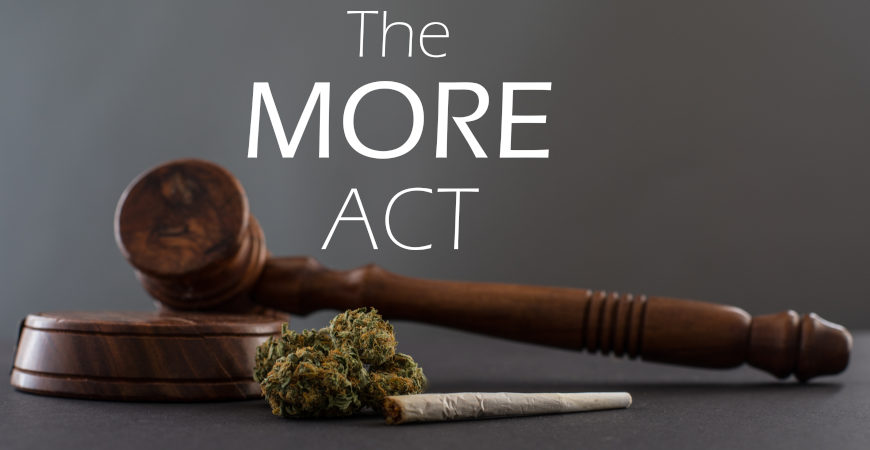Before the election in November, the Democratic-controlled House of Representatives is set to vote on some historic legislation that would mark the first time that the United States Congress has voted on legalization of marijuana at the federal level.
While it is largely just a gesture of political good will for the growing cannabis industry in states that have already legalized the drug for recreational and/or medicinal use — given that it will all but certainly fail to pass in the Republican-controlled Senate — the MORE Act (short for the Marijuana Opportunity Reinvestment and Expungement Act of 2019) marks a moment when an overwhelming number of American voters support full legalization. It also comes at a moment when momentum has snowballed for criminal justice reform, especially when drug convictions are involved.
“You have sort of a convergence of all of these movements and issues and hype,” said Rep. Barbara Lee (D-Calif.), co-chair of the Congressional Cannabis Caucus, speaking to Politico last week. “I think this is the perfect time to move it onto the floor [and] over to the Senate.”

The Senate version of the bill was introduced by Senator Kamala Harris back in July 2019, and it solidifies Harris’ 180-degree about-face on the issue of cannabis and drug laws since she served as district attorney in San Francisco in the last decade. The bill now has seven co-sponsors in the Senate, including former presidential candidates Cory Booker and Elizabeth Warren, and two who signed on in the last week, Kirsten Gillibrand (D-NY), and Tina Smith (D-MN).
As the NORML blog reported this week, the House version of the bill — sponsored by House Judiciary Chair Jerry Nadler — has over 100 co-sponsors, including three Republicans.
Related: Cannabis Activists Seeking to Reform Drug Laws
It’s now up to the house to bring it to the floor for debate and a vote, which Democrats hope will bolster their colleagues in the Senate in some hotly contested races this November.
At least one Republican pollster tells Politico this is politically risky, given Trump’s “law and order” focus and the negative impressions of House Speaker Nancy Pelosi and Rep. Alexandria Ocazio-Cortez among conservative voters. And several speakers at the Republican National Convention “joked” that the only small businesses Democrats cared about reopening in the pandemic were pot dispensaries.
Shop SPARC: Pre-Rolls
Rep. Earl Blumenauer (D-Ore.), co-founder and co-chair of the Cannabis Caucus, pushes back on this idea, given that most polls show over 60-percent of Americans in support of cannabis legalization. “I think this is going to be brought up in all these contested Senate races,” he tells Politico.
The MORE Act would not only remove marijuana from the list of Schedule 1 drugs under the Controlled Substances Act, it would also make the sale, manufacture, cultivation, and possession of cannabis legal at the federal level. Further, the bill makes Small Business Administration loans available to cannabis business, replaces statutory references to “marijuana” and “marihuana” with “cannabis,” requires the Bureau of Labor Statistics to regularly publish demographic data on cannabis business owners and employees, establishes a trust fund to support programs and services for individuals and businesses in communities impacted by the War on Drugs, imposes a 5% tax on cannabis products and requires revenues from the tax to be deposited into the trust fund. Most importantly, the bill would establish a process for expunging past cannabis-related convictions

“The MORE Act would actually erase past convictions for marijuana offenses, opening the door to opportunities to jobs, housing, education, things that could help people, but it would also make it so people will no longer be denied federal benefits because of marijuana activity,” said Maritza Perez, Director of the Drug Policy Alliance, in a statement to The Denver Channel.
While the House vote, scheduled for next week, may be largely ceremonial, it does create some pressure for Republicans in swing districts in both the House and Senate who are up for reelection.
Then, should Democrats take control of the Senate in January, we can expect to see the bill to likely pass in 2021.
Read more of SPARC’s Blogs here.



